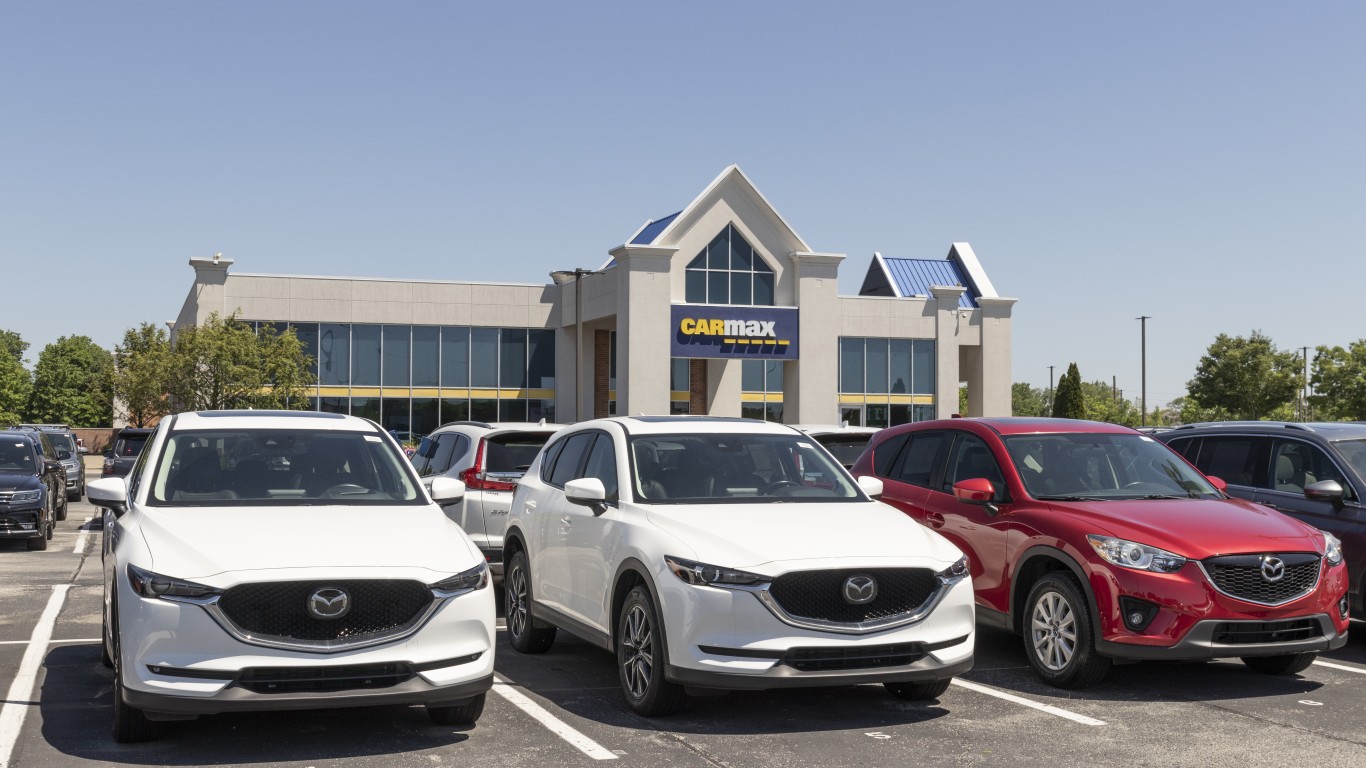
The overall outlook for the auto industry has changed since January, according to analysts John Murphy, Aileen Smith and T.T. Fletcher at Bank of America Securities. Although the analyst team expected industry stocks to be volatile when they released the January report, they also saw “our coverage universe over a multi-year horizon still [remaining] relatively favorable.”
In a new report published Wednesday morning, they say that “2022 is proving not to be the stabilization/ inflection year that many had hoped for but is worse with ongoing supply chain issues and production constraints further exacerbated by geopolitical tensions emanating from the Ukraine invasion and still new COVID resurgences/restrictions out of Asia/China.”
The analysts now expect U.S. sales for 2022 to total 13.9 million units, down from14.55 million in 2021, a decline of 7%. North American production is now forecast at 13.56 million units, down 10% from the prior estimate of 14.15 million units. They say that it is “increasingly obvious … that supply is the most notable headwind to the V-shaped recovery enjoyed by the industry since the mid-2020 trough, not demand.”
Here is a look at six companies in BofA’s coverage universe that got rating or price objective changes Wednesday morning.
Adient
Spun out of Johnson Controls in 2016, Adient PLC (NYSE: ADNT) is a supplier of seating for cars, light trucks and commercial vehicles. BofA writes that the company is now “starting to demonstrate progress on its turnaround and restructuring efforts, but [has been] recently challenged by COVID disruptions.” The stock has been upgraded from Underperform to Neutral and the price target is $47.
The stock traded down about 3.5% in the late morning Wednesday to $34.87, implying an upside potential of nearly 35% based on BofA’s price objective. The analysts note that the price objective “is based on an EV/EBITDA [enterprise value/EBITDA) multiple of roughly 6x on our FY2023 estimates, which reflects a more mid-cycle supplier average multiple on a more trend volume/revenue level.”
Lear
Lear Corp. (NYSE: LEA) is another supplier of automotive seating systems, as well as other electrical components to automakers. BofA’s analysts call it “one of the best operators among seating suppliers” and “well-positioned … due to its leverage to industry mega-trends of electrification and connectivity through its E-Systems segment.” The shares were upgraded from Underperform to Buy and the price objective was lifted from $150 to $195.
Shares traded down about 1.6% Wednesday morning at $131.40, in a 52-week range of $127.91 to $204.91. Based on BofA’s price objective, the upside potential based on the current price is 48.4%. The analysts say the price objective “is based on an EV/EBITDA multiple of roughly 6.5x on our 2023 estimates, which reflects a more mid-cycle supplier average multiple on a more trend volume/revenue level.”
Visteon
Visteon Corp. (NASDAQ: VC) designs and manufactures electronics and connected-car solutions that it then supplies to automakers. BofA’s analysts have upgraded the stock from Underperform to Neutral and raised their $122 price objective to $140. The rating is based on valuation “as the company trades at a meaningful premium to other suppliers despite financial performance (above-market growth, margins, returns, etc.) that is less impressive.”
The stock traded up slightly more than 1% Wednesday morning, at $99.47 in a 52-week range of $91.59 to $134.57. At BofA’s price objective, the upside potential is 40.7%. Visteon’s price objective “is based on an EV/EBITDA multiple of 12x on our 2023 estimates … [which is] around the midpoint of [Visteon’s] historical range (4-16x) since 2011, although the stock has traded as high as 18x+.” The analysts note that the current trading multiple for suppliers in BofA’s coverage is seven times.
Aptiv
This is a suppler electrical, electronic and safety solutions to automotive and commercial vehicle makers worldwide. The BofA analysts have upgraded Aptiv PLC (NYSE: APTV) stock from Underperform to Buy and raised their price objective from $125 to $165. The company gets high marks from BofA as “one of the best-positioned suppliers, due to its leverage to industry mega-trends (autonomy, electrification, connectivity, etc.), which should drive outsized revenue and earnings growth versus peers.”
Shares traded down about 1.5% Wednesday morning to $111.09, in a 52-week range of $94.75 to $180.81. At BofA’s new price objective, the upside potential on the stock is 48.5%. The price objective represents an EV/EBITDA multiple of 15 times, a figure the analysts say is warranted because Aptiv is “more of a pure-play electrification/autonomy/connectivity/mobility-centric company, unencumbered by factor risks from other non-future tech businesses/products.”
CarMax and America’s Car-Mart
Used car retailers CarMax Inc. (NYSE: KMX) and America’s Car-Mart Inc. (NASDAQ: CRMT) did not fare as well with BofA’s analysts, who cut their ratings, on CarMax from Buy to Neutral and on America’s Car-Mart from Buy to Underperform. Price objectives were lowered from $195 to $165 and $191 to $123, respectively.
America’s Car-Mart focuses on selling older model, higher mileage vehicles, a niche in which BofA analysts expect constrained supply and expect “elevation in used vehicle pricing will negatively impact Car-Mart’s ability to procure good inventory and sell it at affordable prices to customers, which should hinder same-store sales growth, revenue, and earnings.”
CarMax remains focused on expansion and faces persistent COVID-19-related pressures that “could impact levels of trade-in/off-lease vehicles, resulting in reduced supply into the used vehicle channel and lowering vehicle churn, which could drag on same-store sales, revenue, and earnings.”
Shares of America’s Car-Mart traded down about 3.7% Wednesday morning, at $77.77 in a 52-week range of $72.50 to $177.45. At BofA’s price objective of $123.00, the upside potential is 58.2%. The price objective is based on a price/earnings multiple of about 10 times calendar year 2023 earnings estimates and “emerging macroeconomic headwinds [to Car-Mart’s] business including tight inventory in the used vehicle market and weakening of low-income consumers.”
CarMax stock traded down about 3.9% to $95.93, in a 52-week range of $95.04 to $155.98. BofA’s price objective of $165.00 is based on a price/earnings multiple of 20 times for 2023 and implies upside potential of 72%. CarMax continues to implement a more omnichannel approach (i.e., online sales), a solid plus for the company. Downside risks include extreme fluctuations in used car pricing, customer preference for new cars rather than late-model used vehicles, reduced credit availability and increased disruption from more technologically savvy competitors.
Thank you for reading! Have some feedback for us?
Contact the 24/7 Wall St. editorial team.

 24/7 Wall St.
24/7 Wall St.



